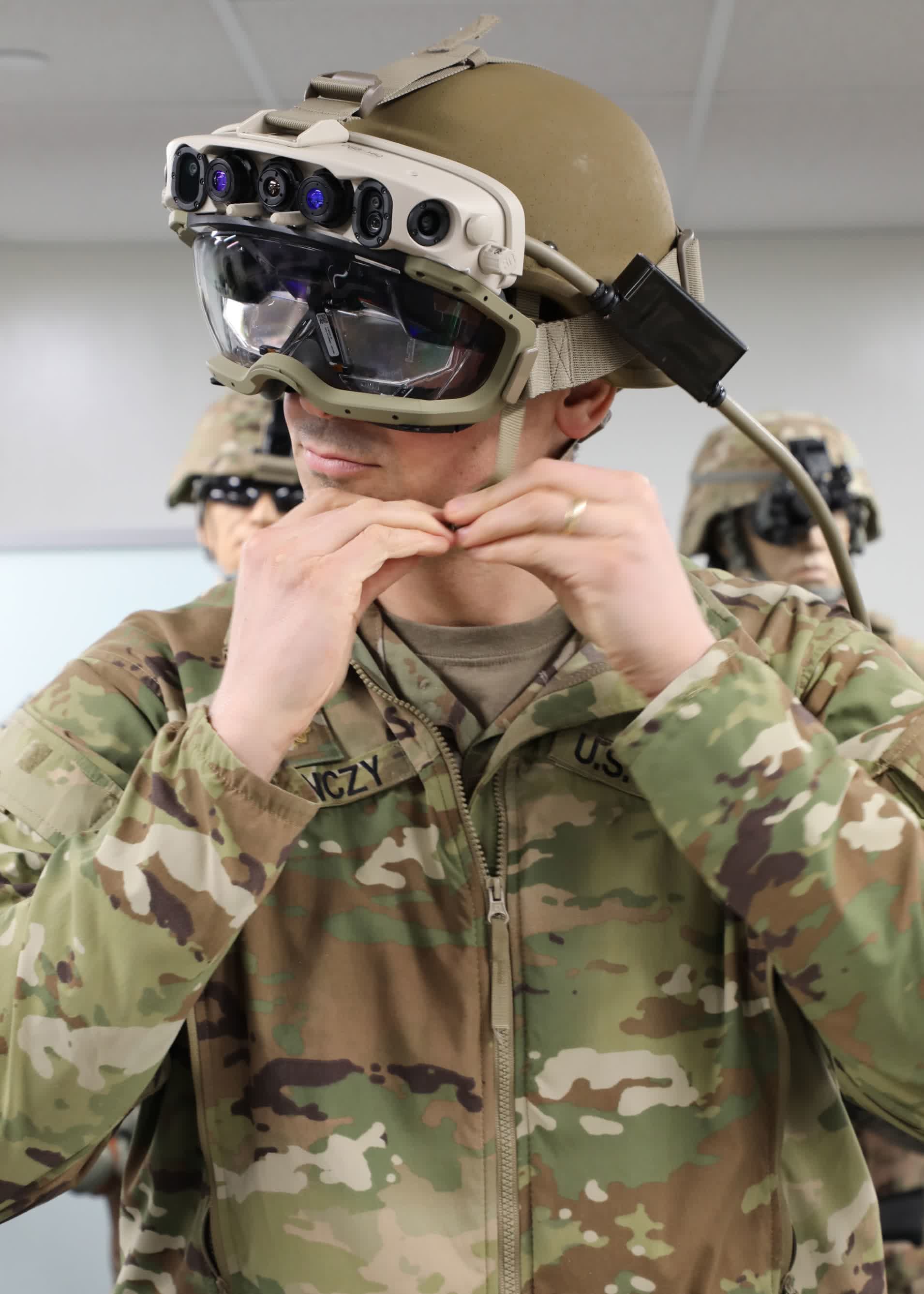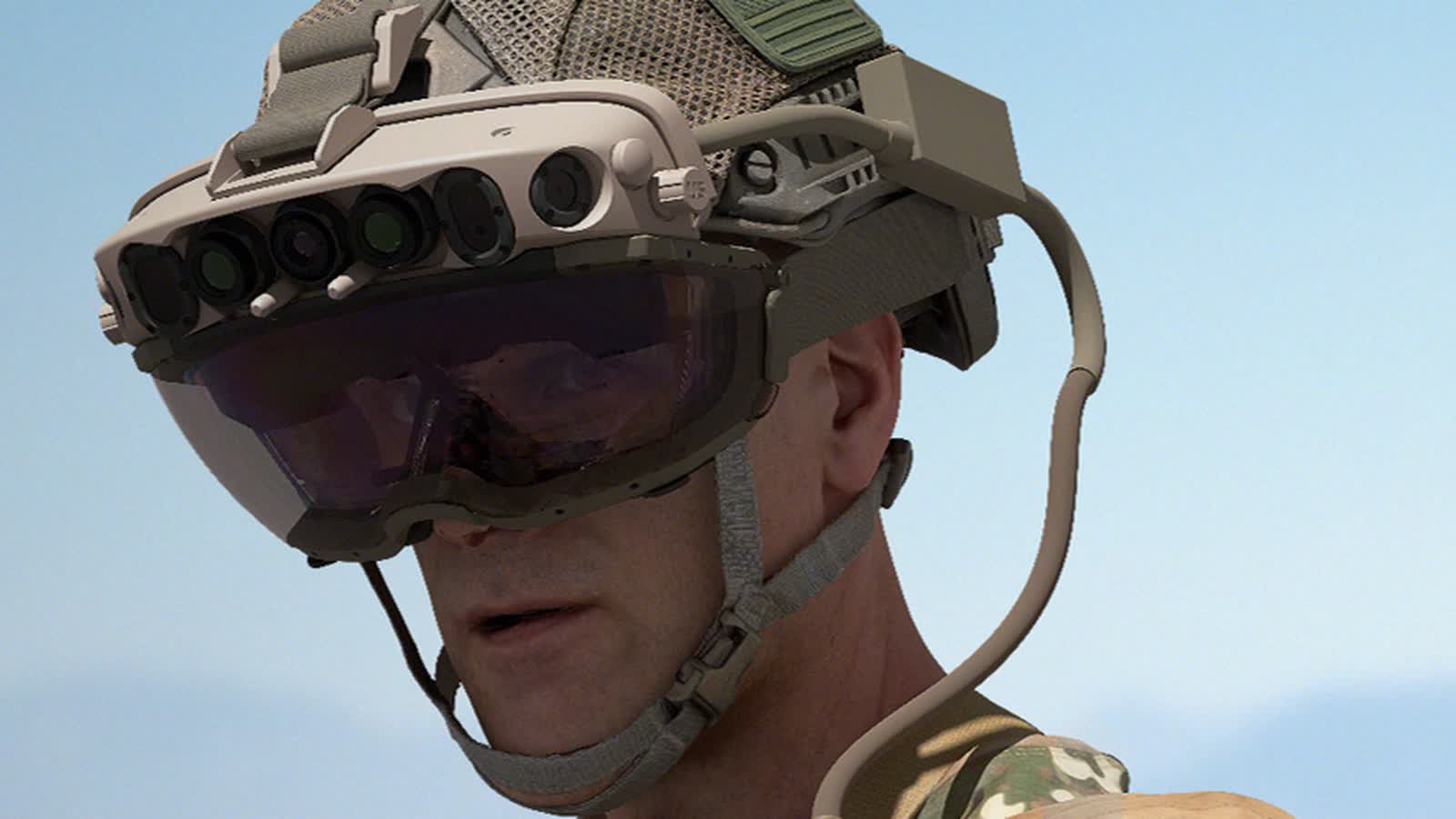What just happened? Microsoft has won a contract to build mixed reality headsets for the US Army based on its own HoloLens technology. The Redmond firm will supply 120,000 Integrated Visual Augmentation System (IVAS) devices in a deal that could be worth up to $21.88 billion over the next ten years.
Microsoft began prototyping the system in 2018 after being awarded a $480 million contract. The new deal involves creating finalized production versions for soldiers.
The system combines high-resolution night, thermal, and soldier-borne sensors into a heads-up display. "The system also leverages augmented reality and machine learning to enable a life-like mixed reality training environment so the CCF can rehearse before engaging any adversaries," writes the US Army.

Tech companies working with branches of government and military is often a contentious issue, especially among their employees. In 2018, Microsoft CEO Satya Nadella responded to an open letter co-signed by more than 100 Microsoft workers protesting the firm's work with US Immigration and Customs Enforcement (ICE).
Microsoft ran into a similar controversy after signing the initial contract with the Army for the IVAS prototypes. Employees once again expressed their disapproval in an open letter, forcing Nadella to defend the move. The CEO emphasized that Microsoft and the DoD would continue to work together.
"We made a principled decision that we're not going to withhold technology from institutions that we have elected in democracies to protect the freedoms we enjoy," said Nadella. "We were very transparent about that decision, and we'll continue to have that dialogue [with employees]."
Last April saw the DoD's Inspector General clear Microsoft's $10 billion JEDI contract after no evidence of wrongdoing was found. Amazon had disputed the decision to award its cloud rival the contract, claiming it is "uniquely experienced and qualified to provide the critical technology the US military needs, and remains committed to supporting the DoD's modernization efforts." The company alleged animosity between Jeff Bezos and Donald Trump led to the president ensuring Microsoft was chosen over Amazon.
